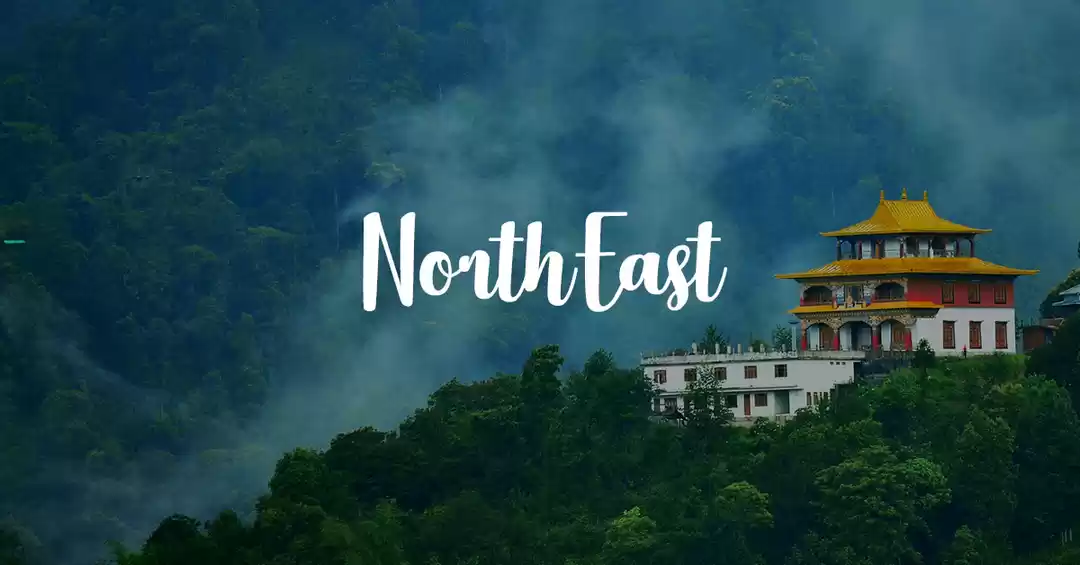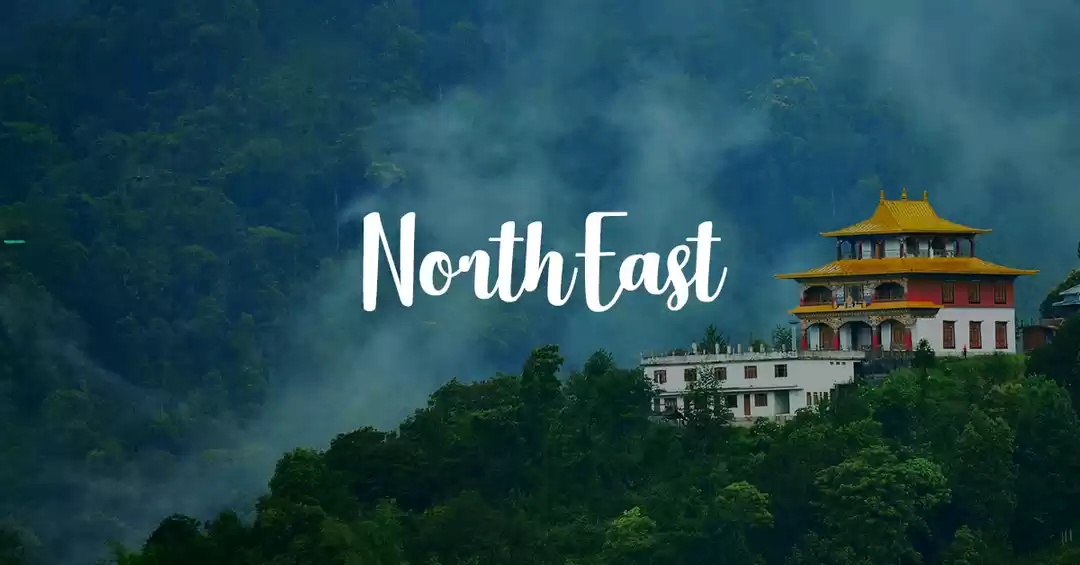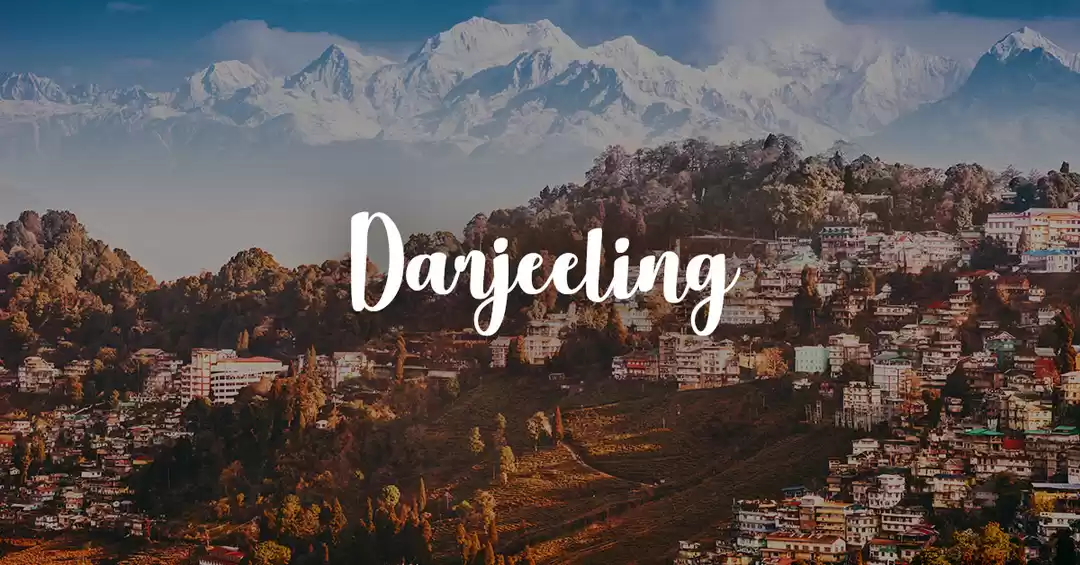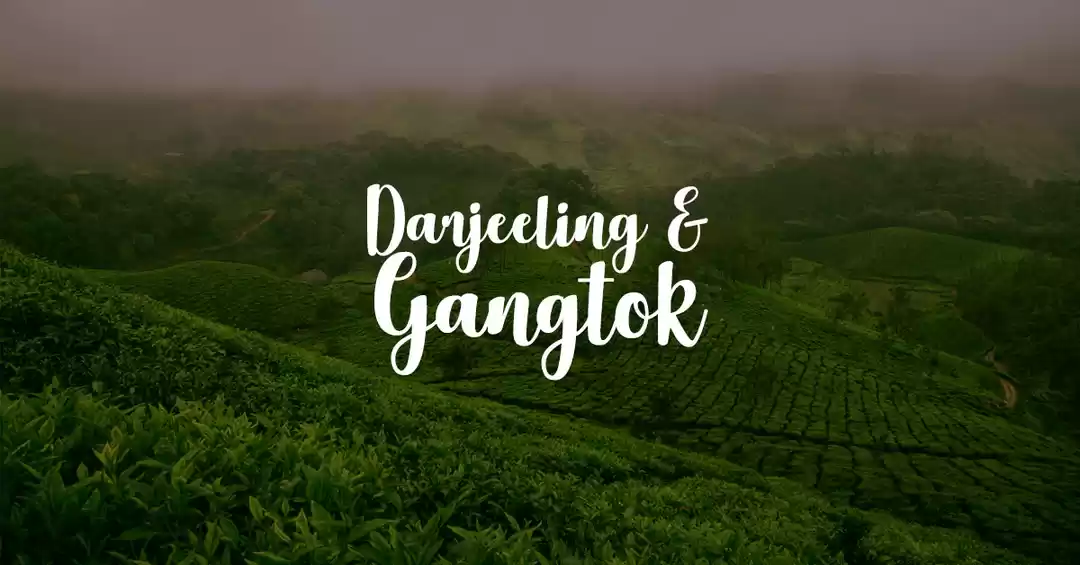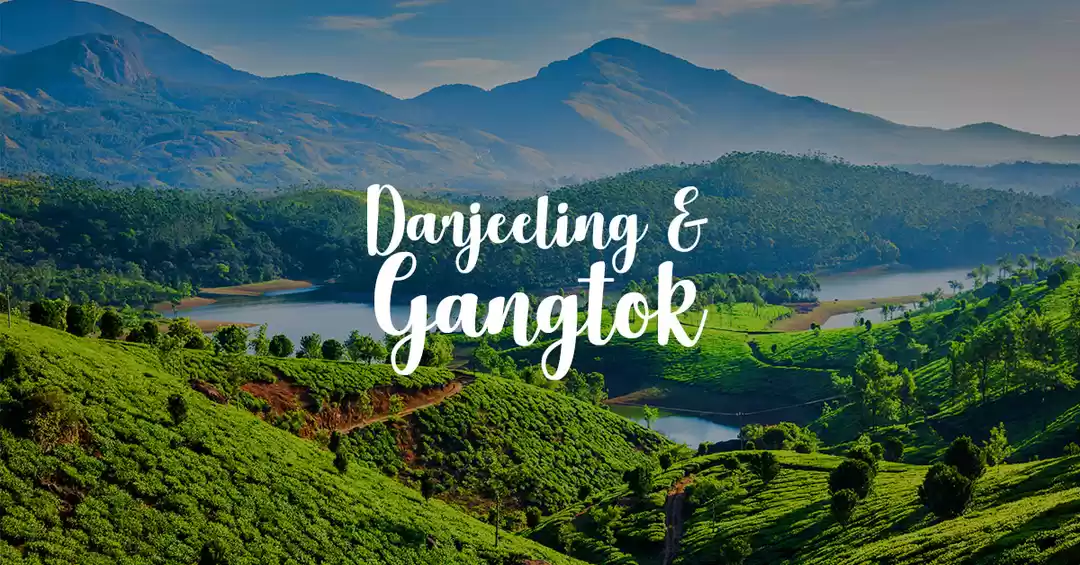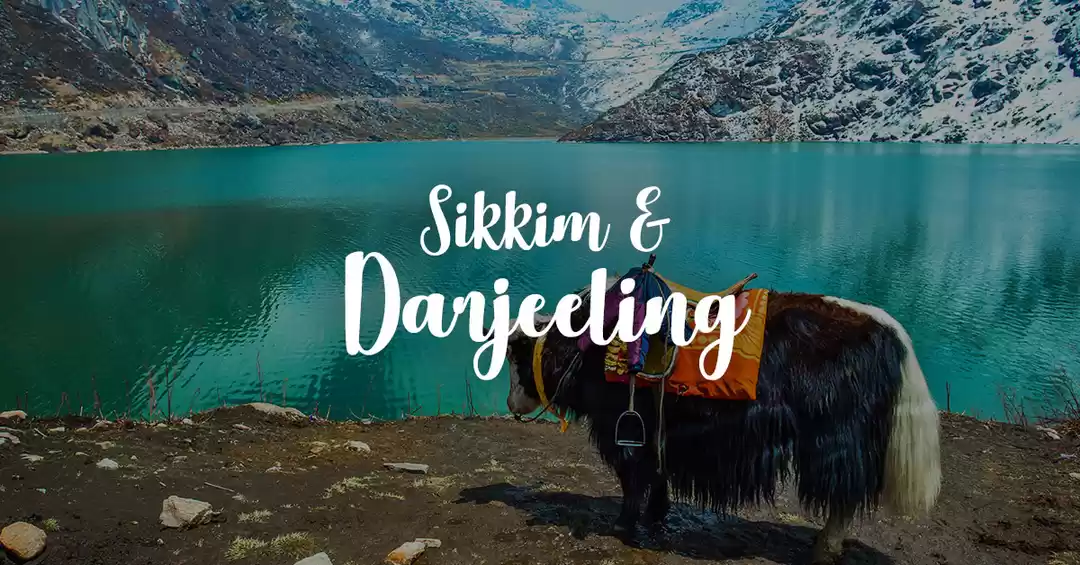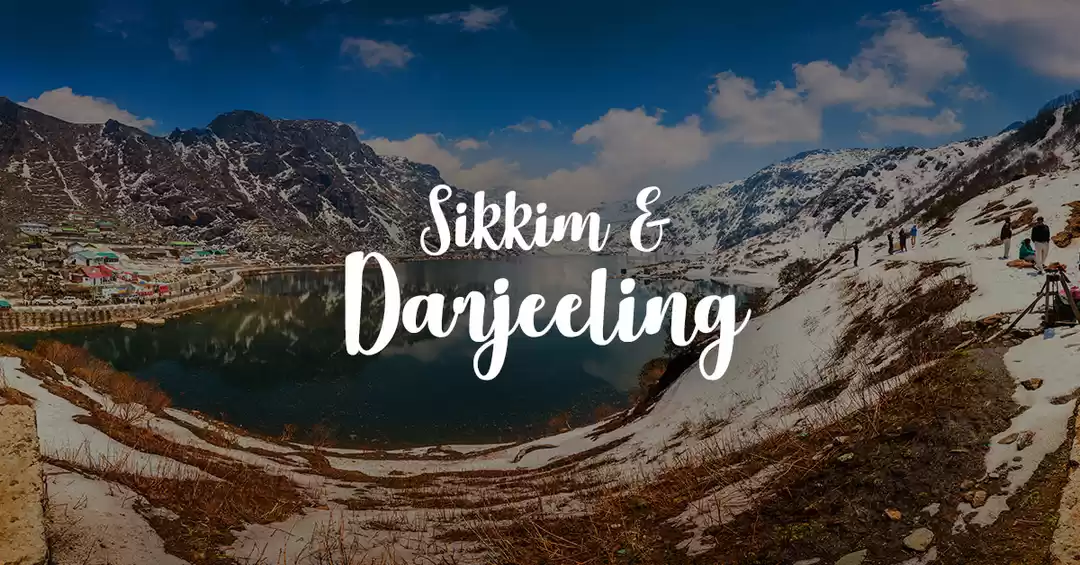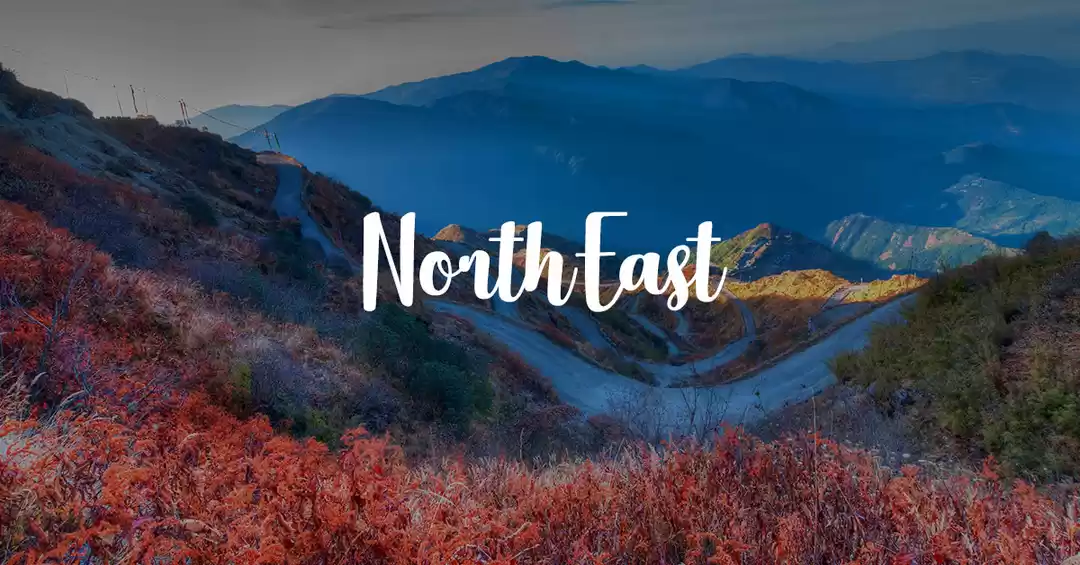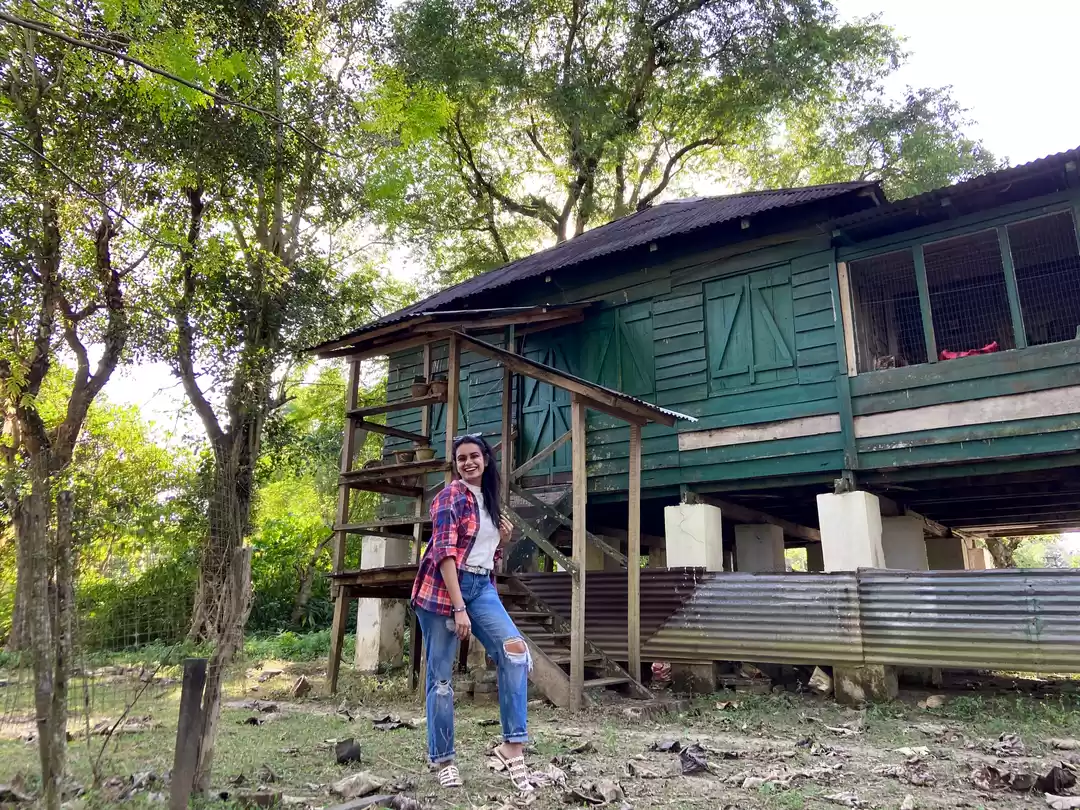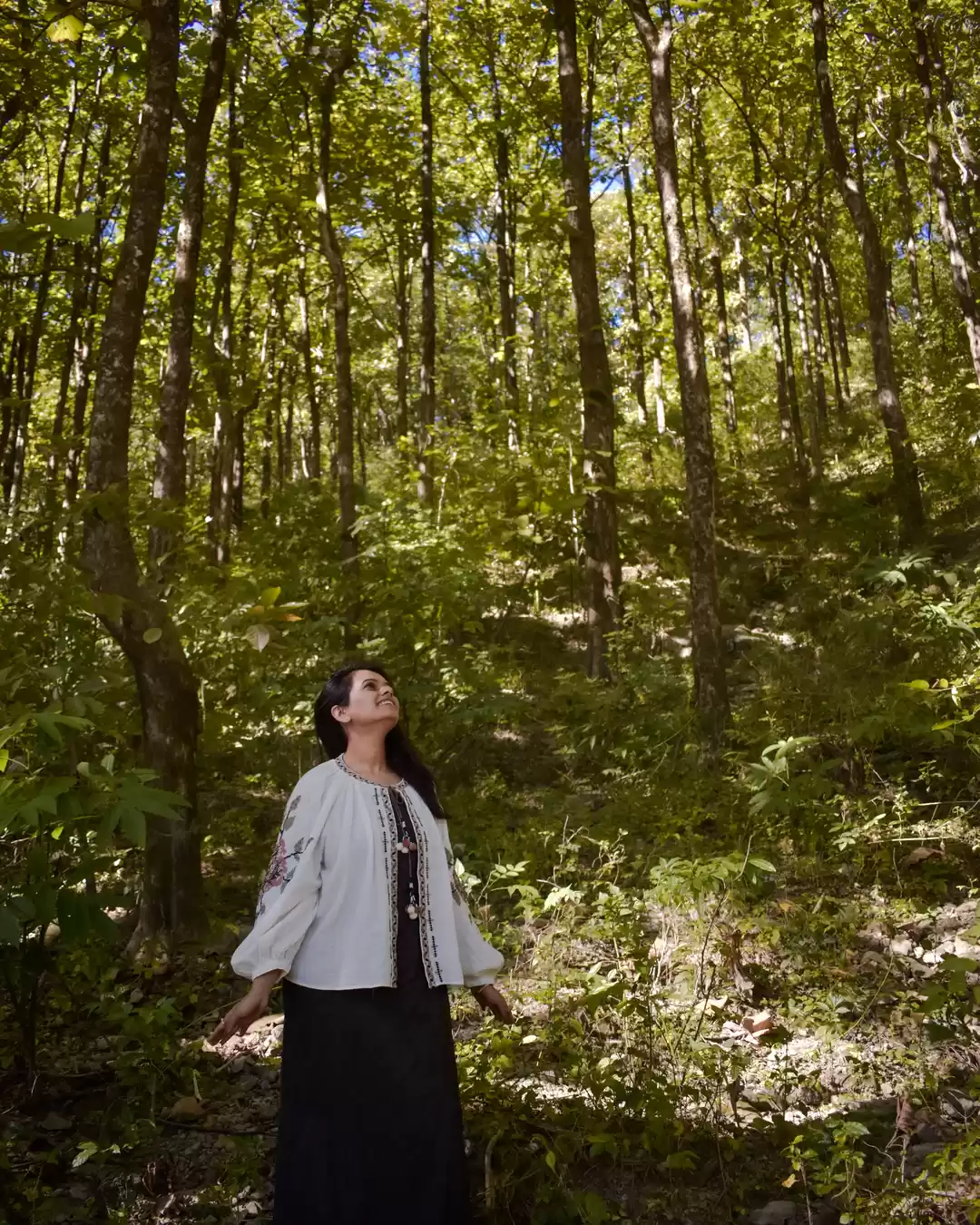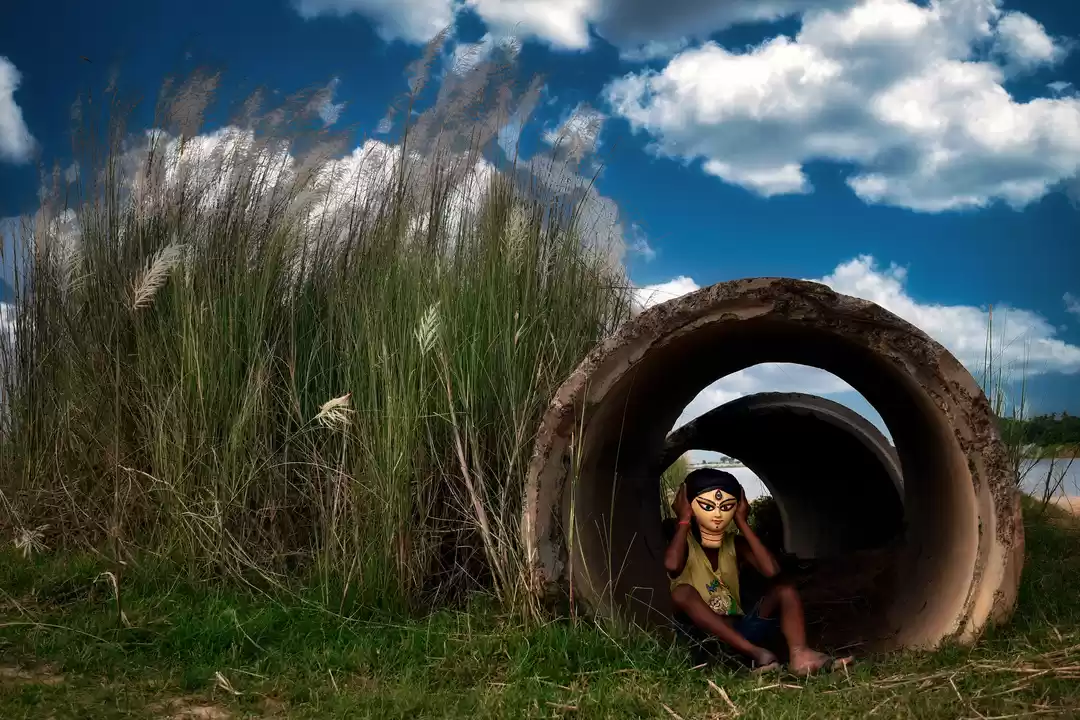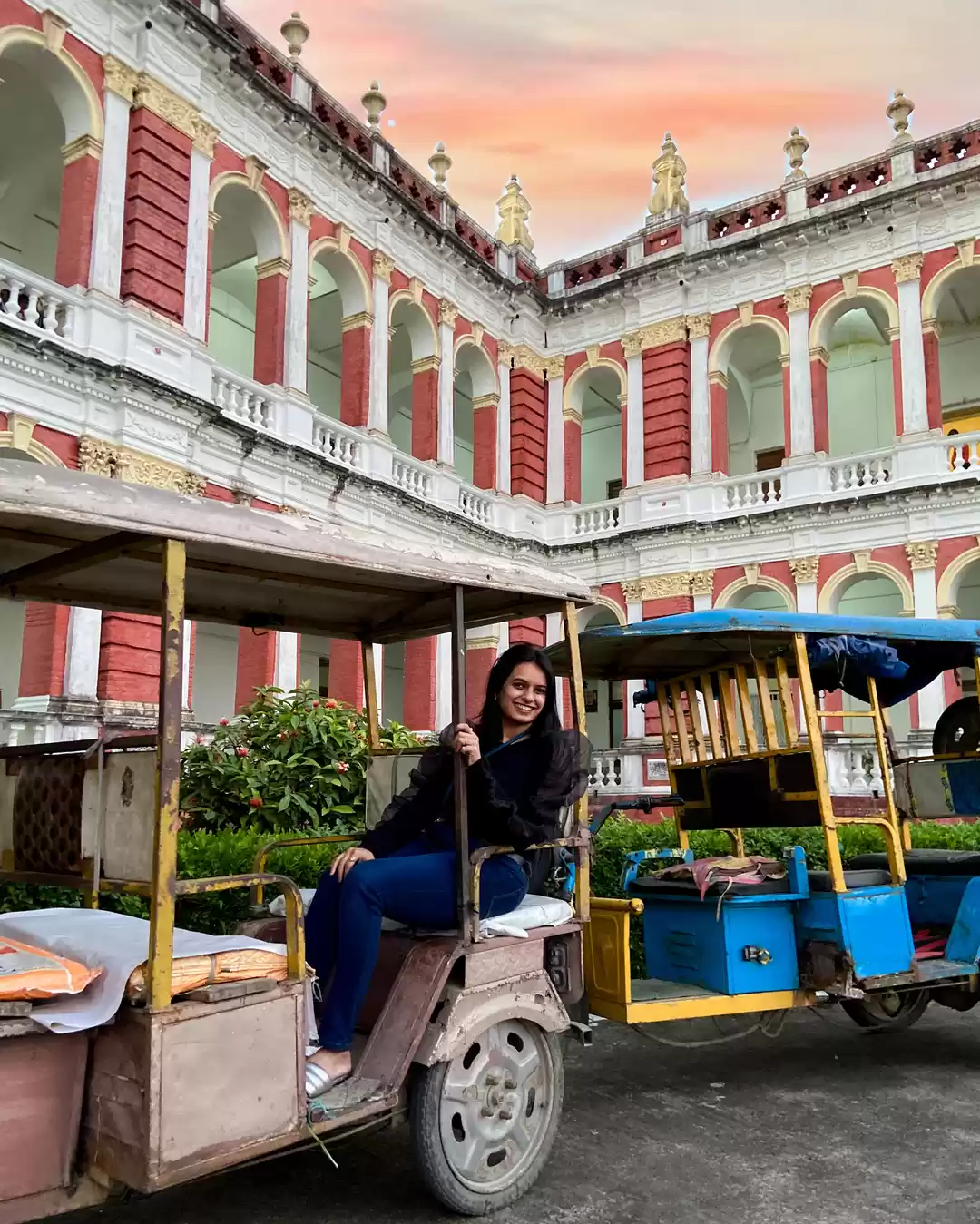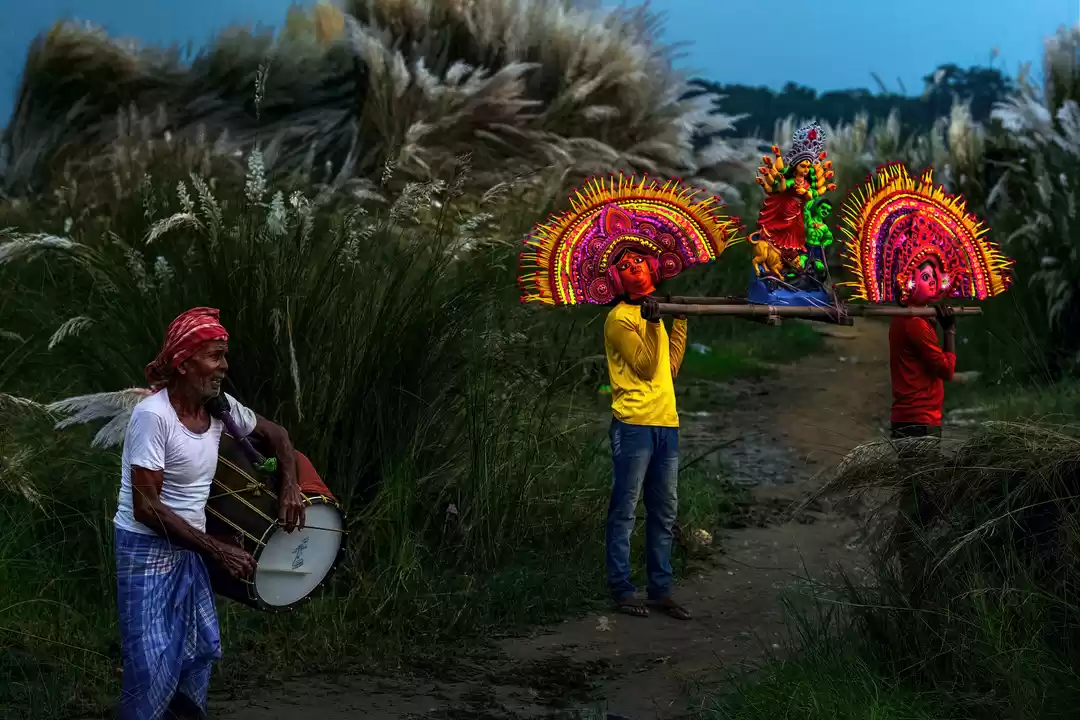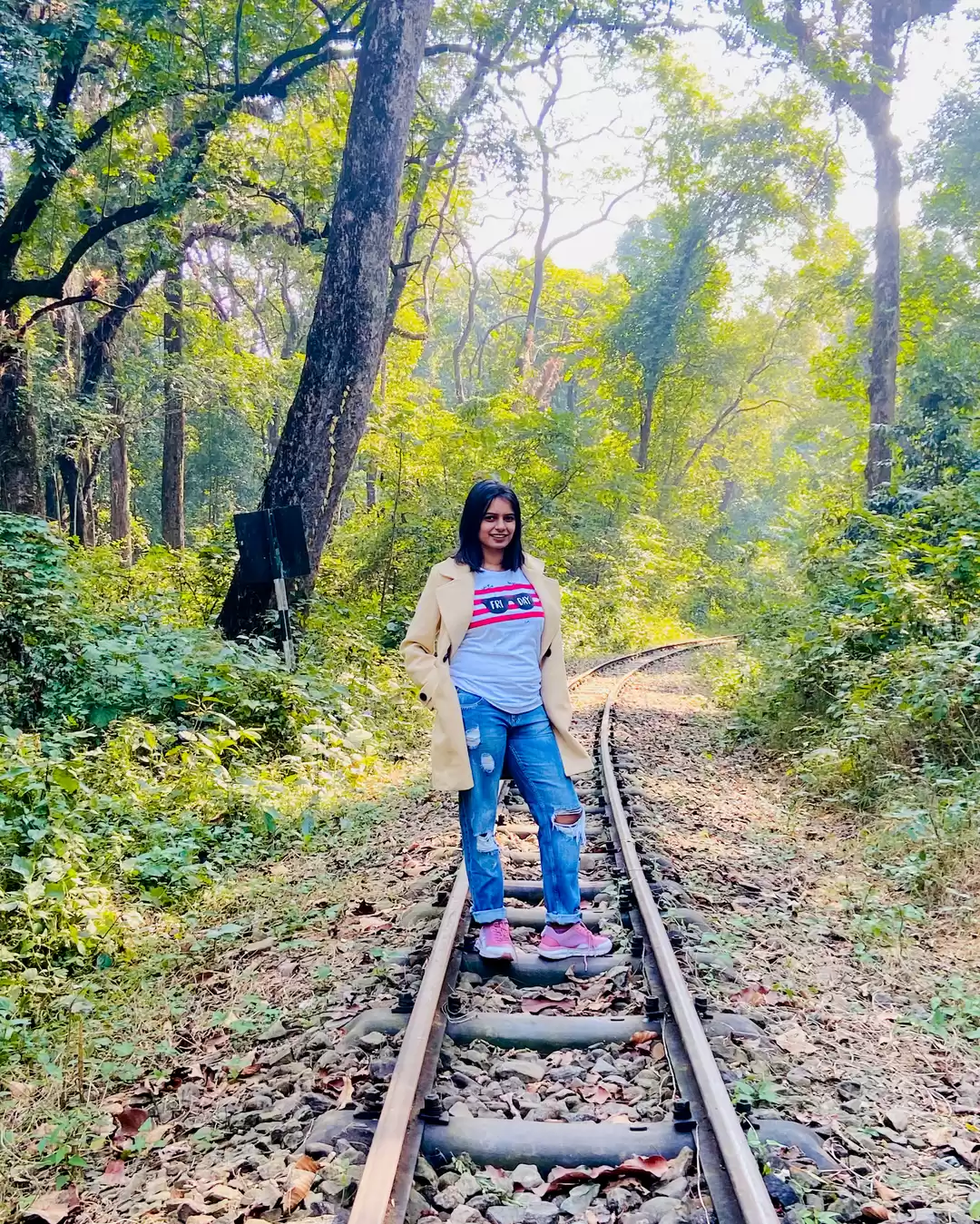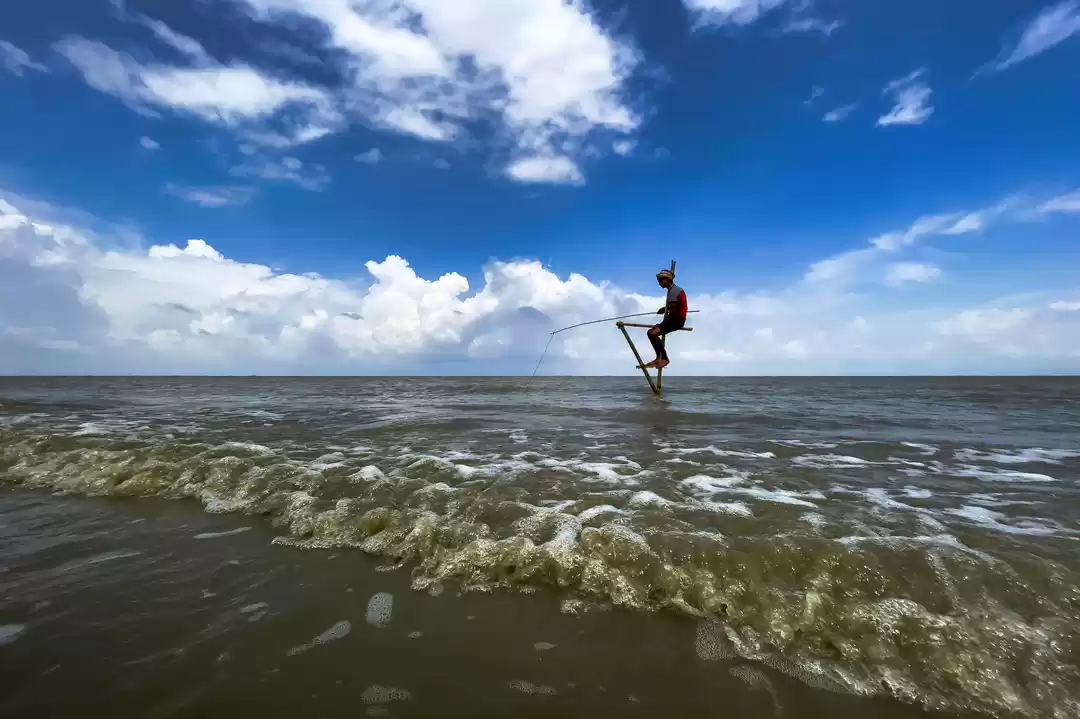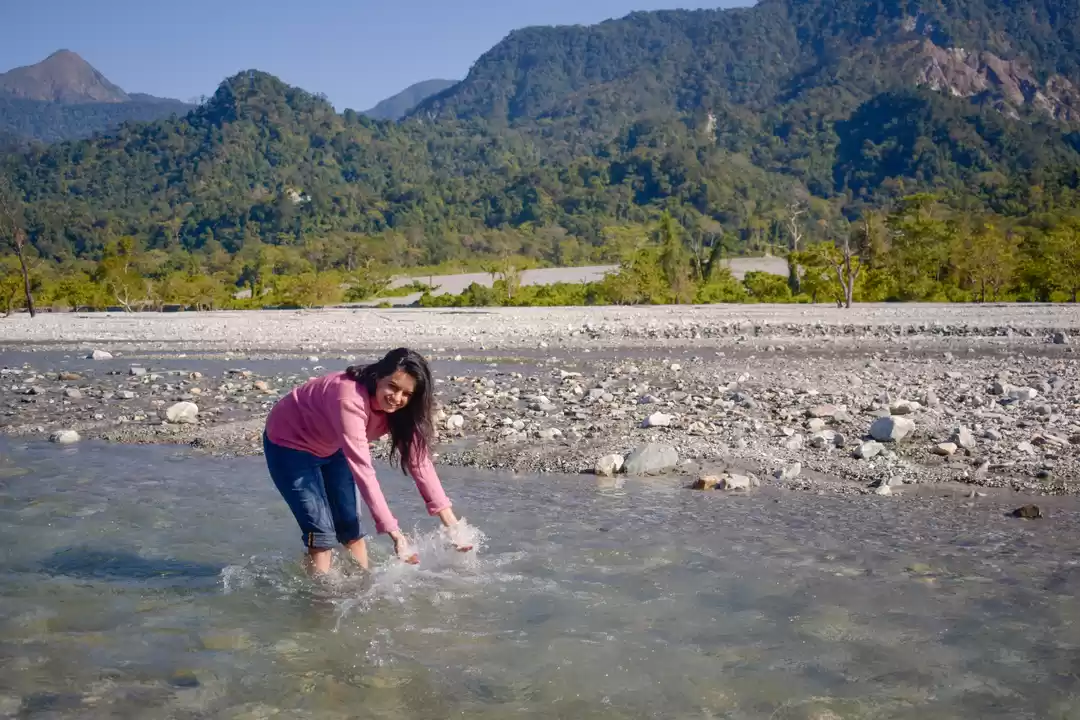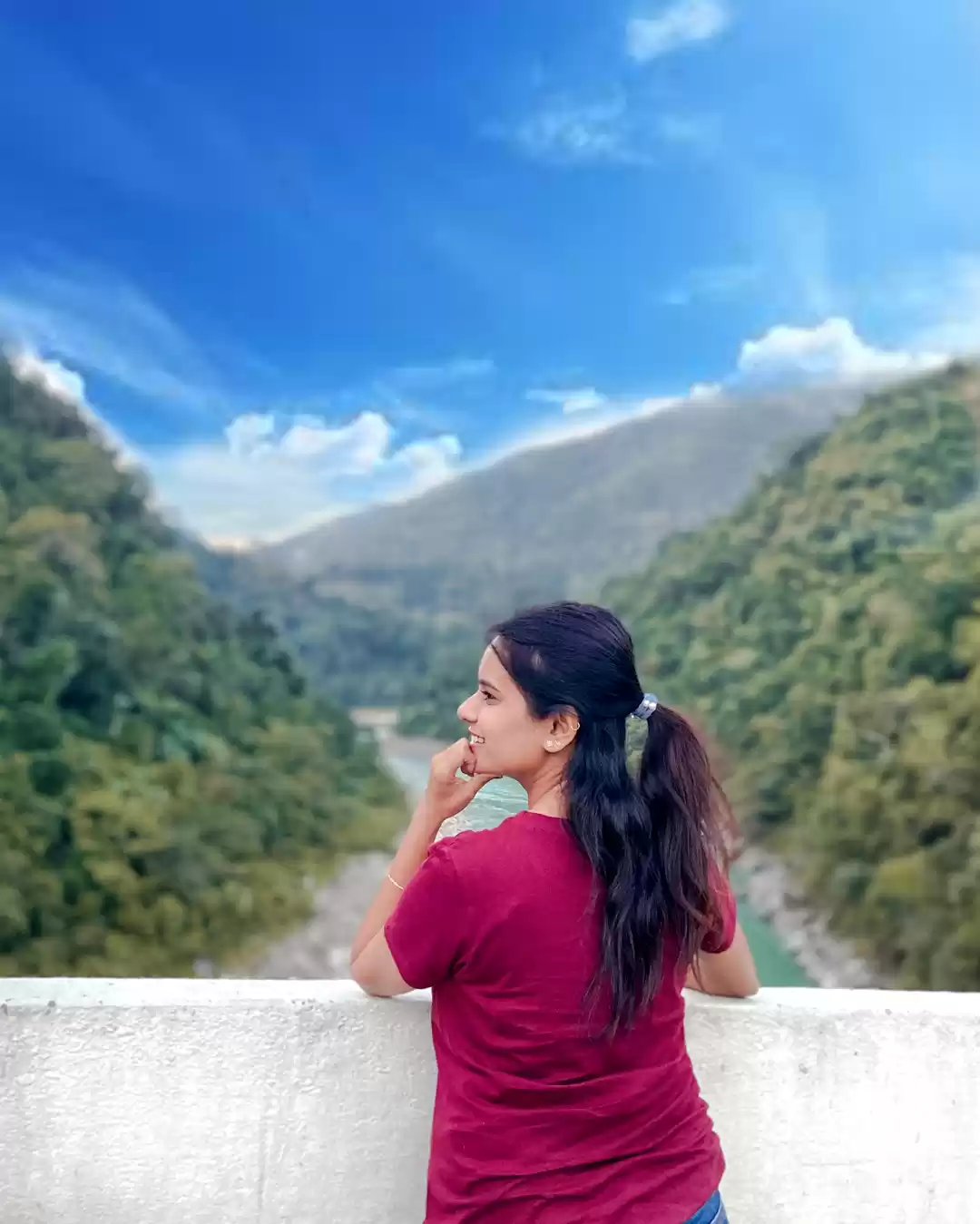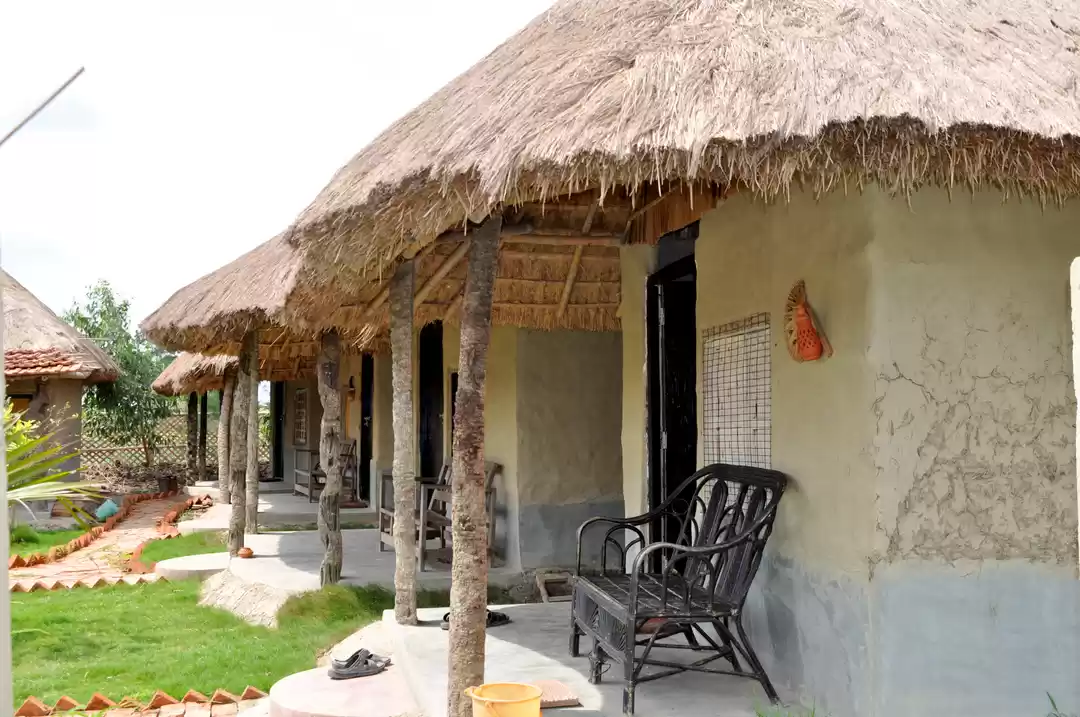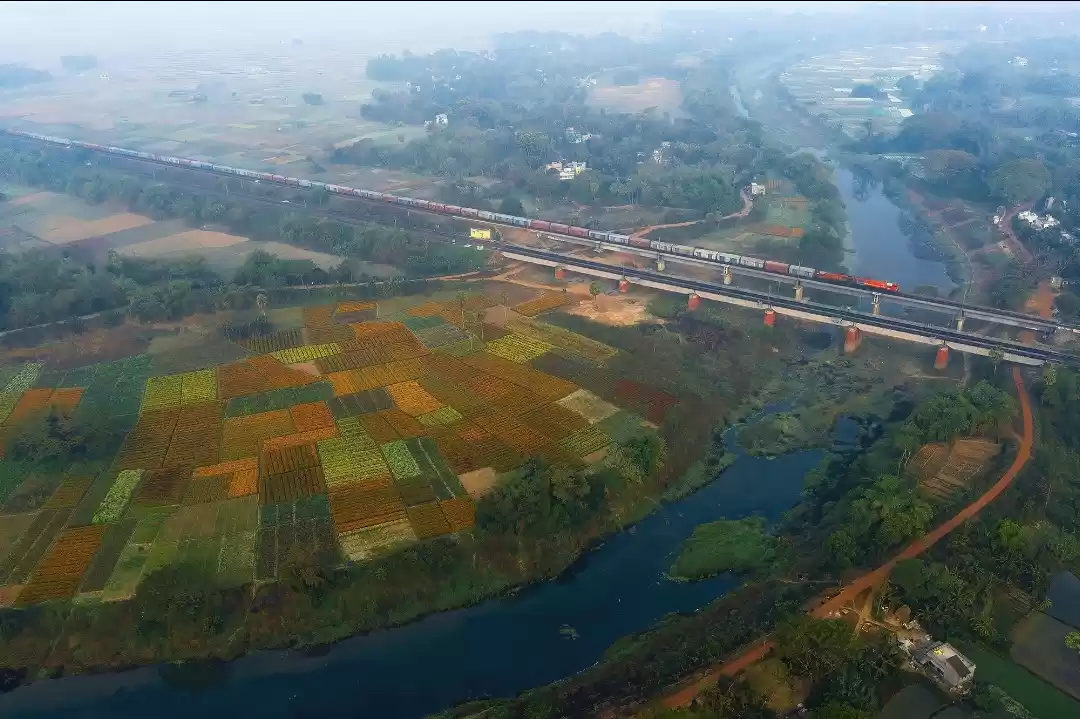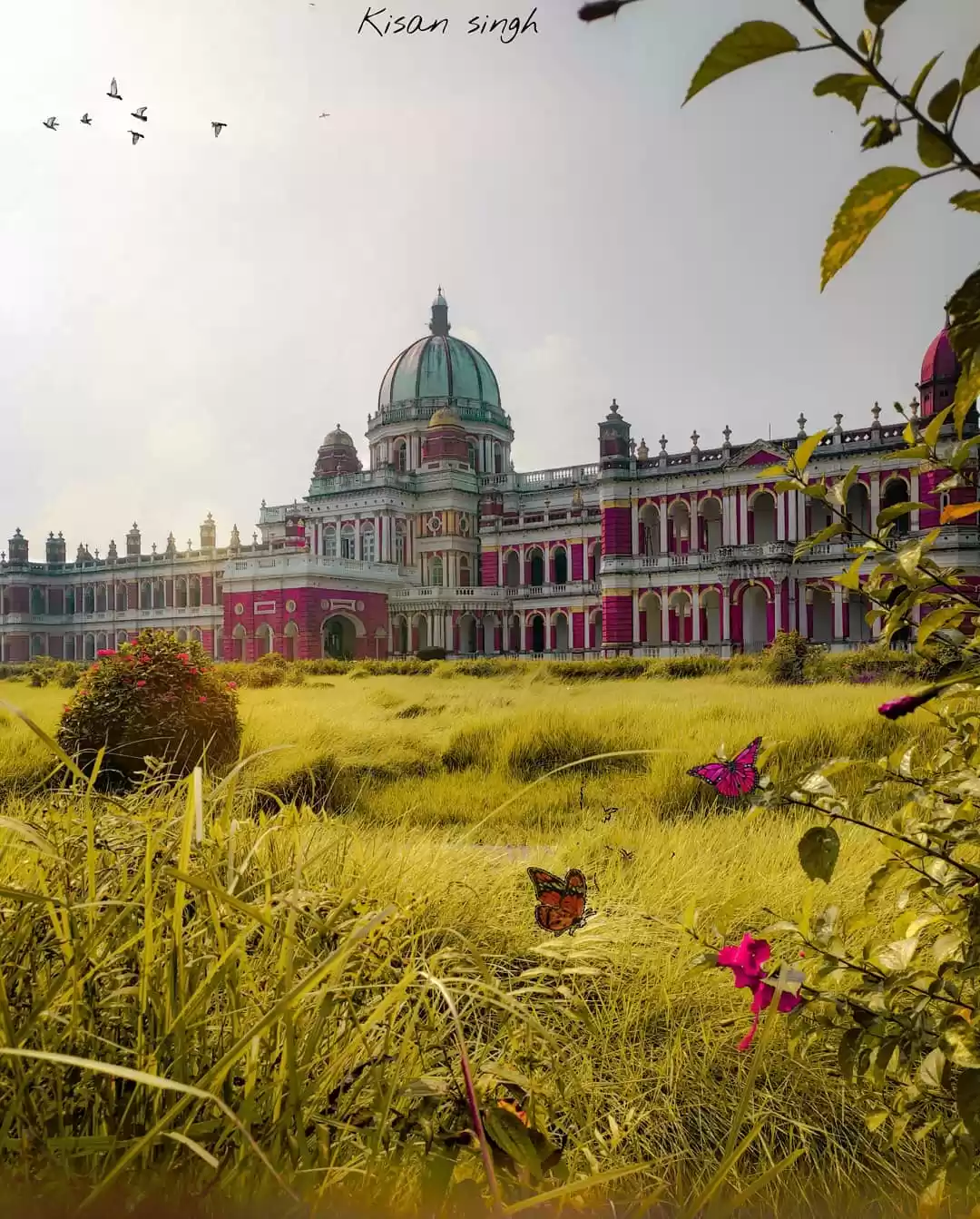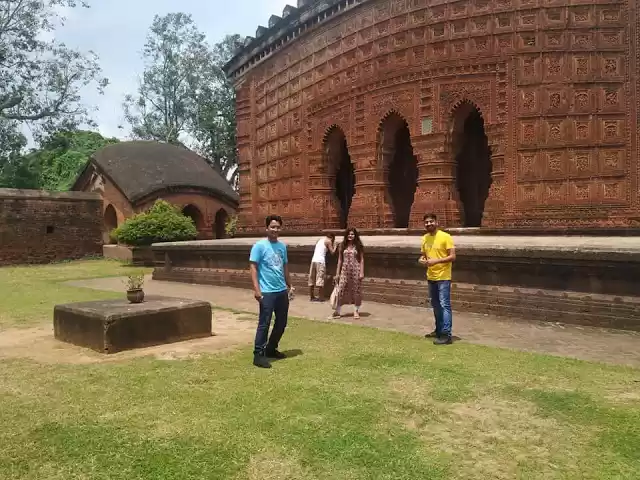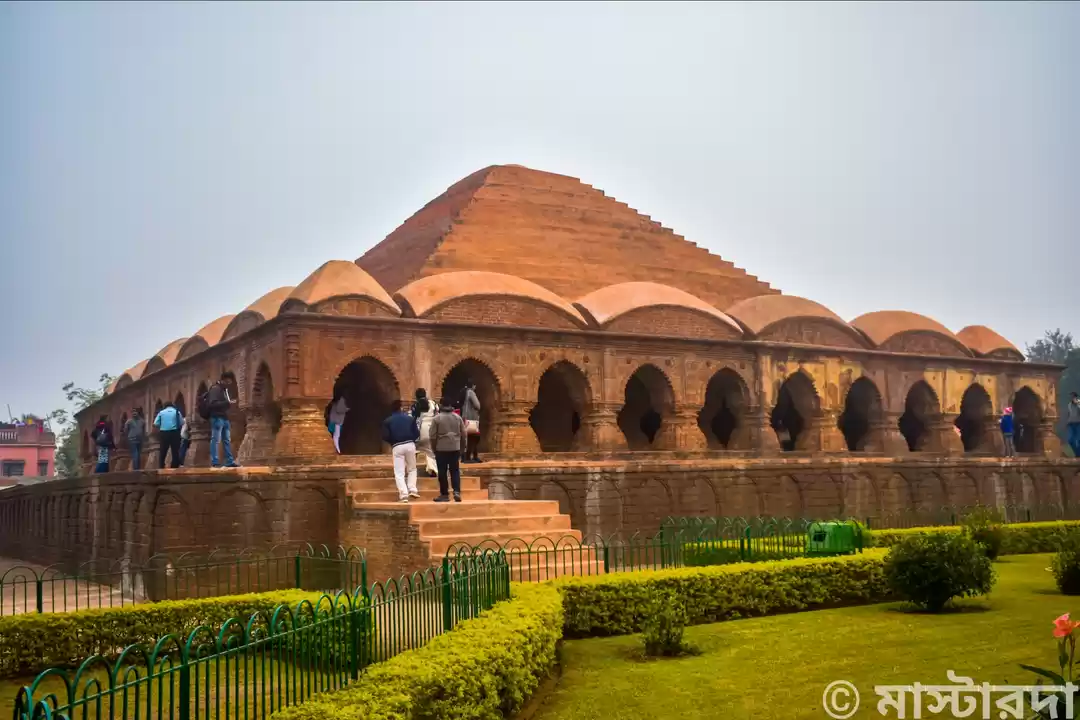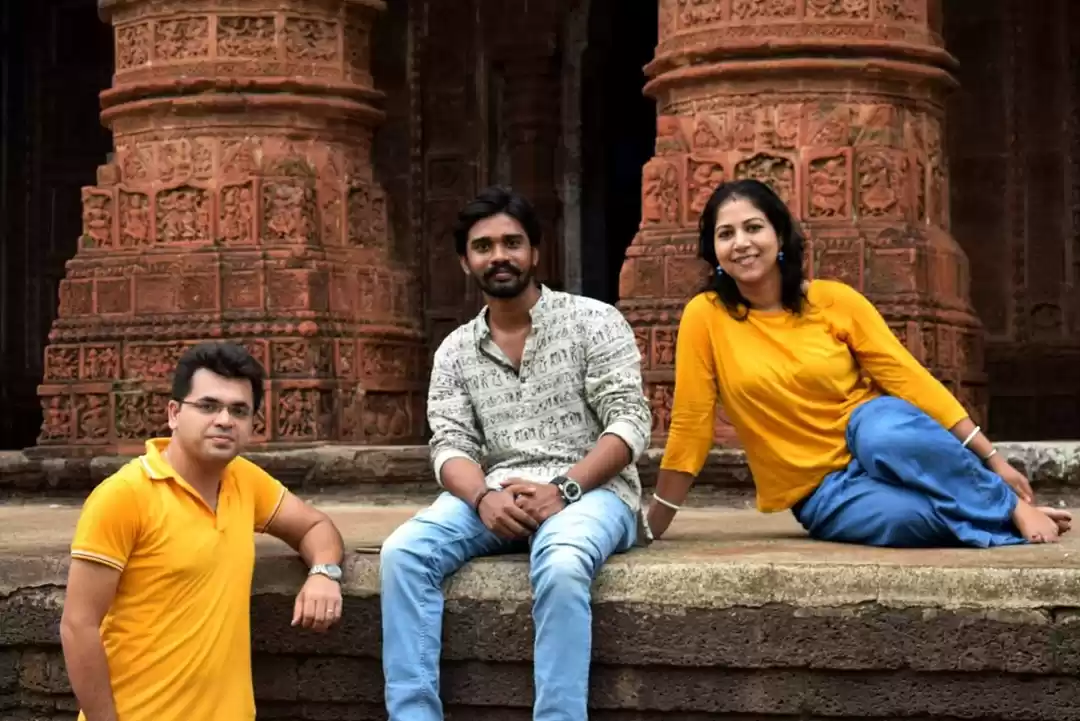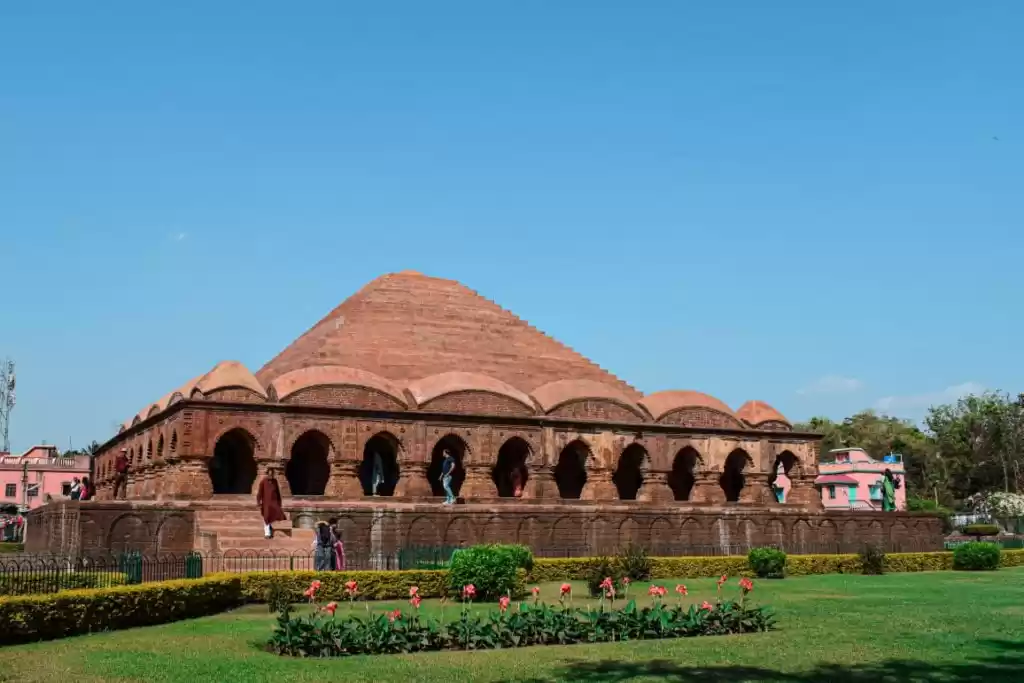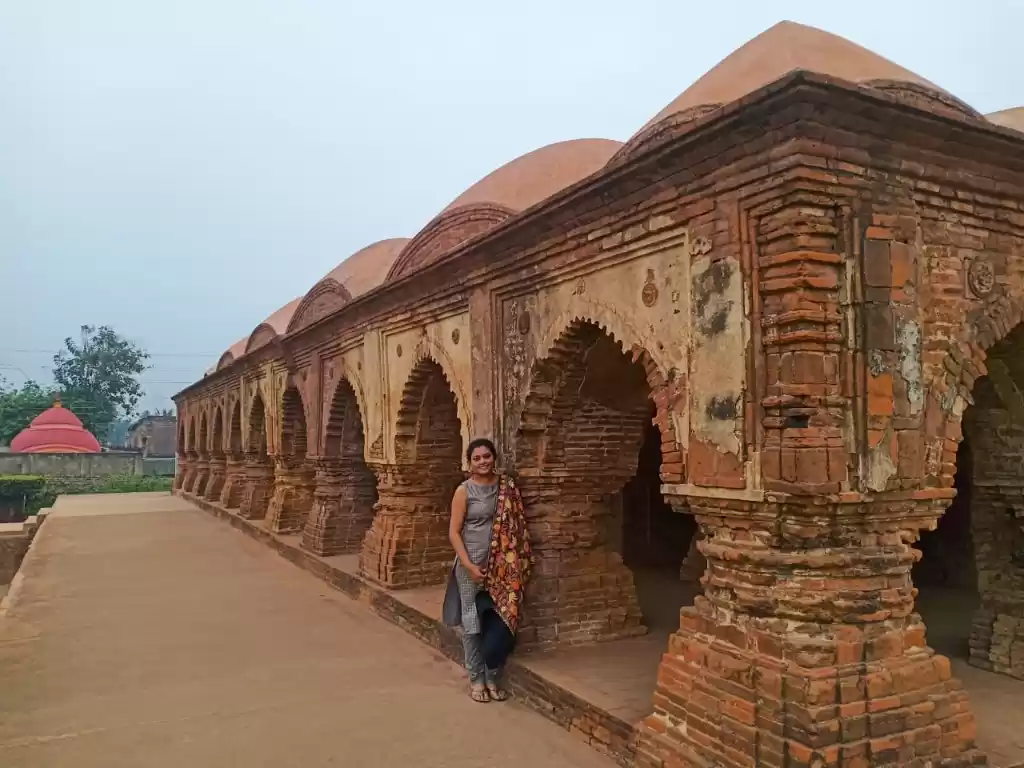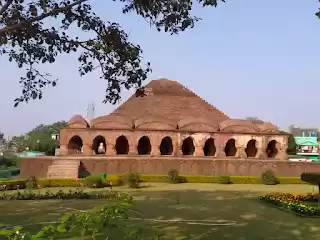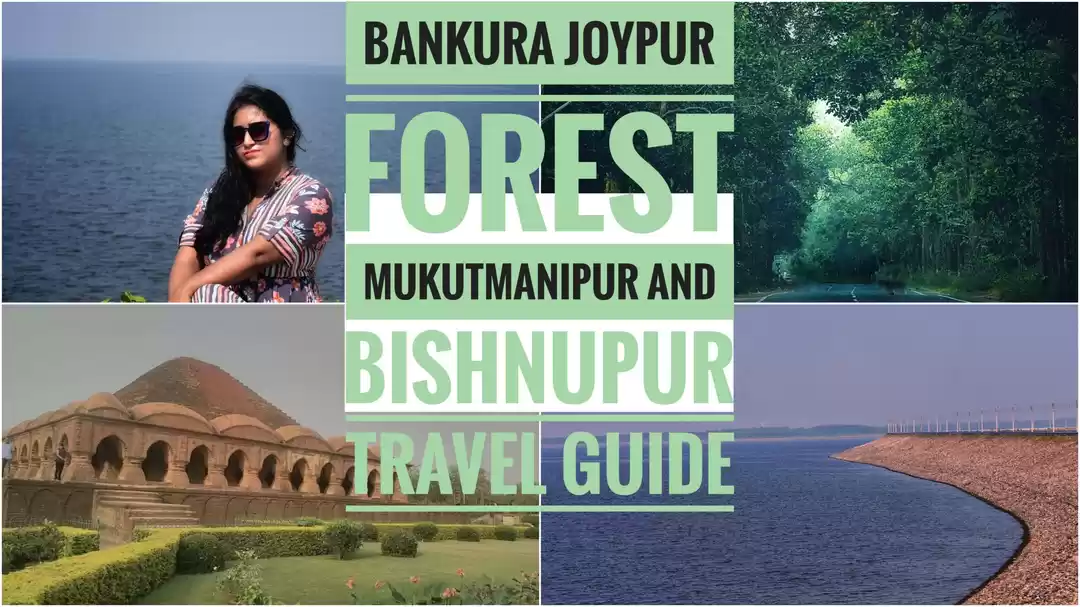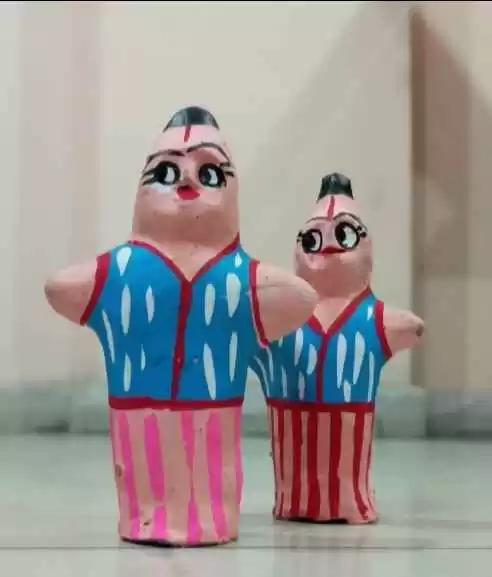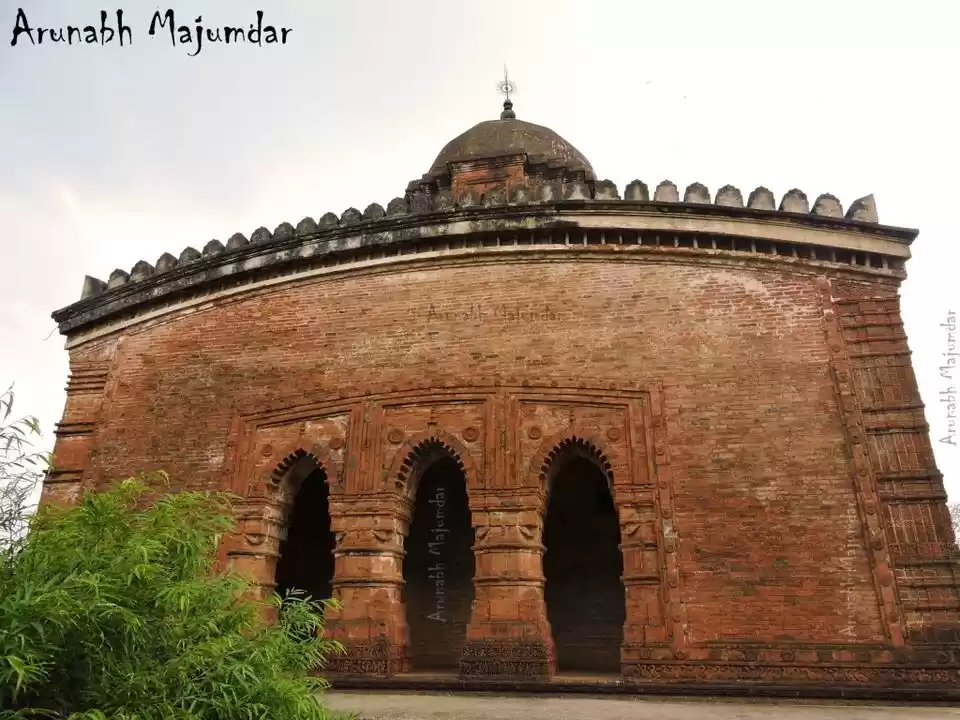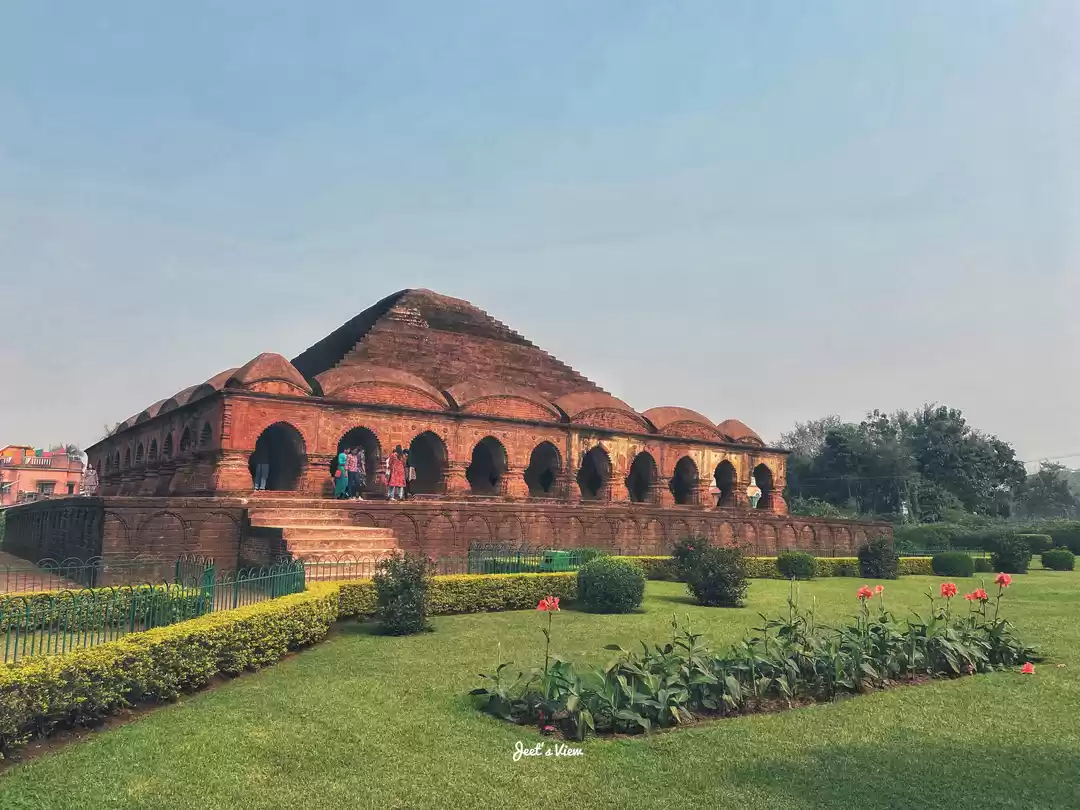
We did not go to Bankura or Bishnupur, we went in the search of Mallabhum, to live the history of the Malla Kings and to learn the stories of their flourish and ruins. How Lord Madan Mohan still resides in wrecked temples, how Radha and Krishna still play Rasleela in the dark maze of Rasmanch and how one could still hear the cries of Lalbai at the Lalbandh. Bishnupur now might be living in the ruins but the stories behind are spellbinding.

The simplicity of people living out there is mesmerizing and their sincerity towards their craft is infectious. Generations after generations have been blessed with creativity and it reflects in the entire Bankura region.

Bishnupur served as the capital of Malla dynasty for about thousand years and the region is referred to as Mallabhum after them. The Malla rulers were Vaishnavites and took steps to build a city with archaeological strength and cultural values.

The Malla kings were brave hearts and Mallabhum always remained undefeated. Their power faded during the times when Mughal Empire weakened under the last royals of the empire. Apart from its constructions, Bishnupur is famous for its Hindustani classical music also known as Bishnupur Gharana, terracotta and dokra craft, Ganjifa cards and Baluchari and Mallabhum Tassar silk sarees.

In the past few days, we came across a lot of articles where people suggest how they are travelers and not tourists. Not sure what they meant because as much we love sitting by the beach or gazing at the mountains, we also love seeing everything a place has and ticking off our bucket list.
In this blog, we aim to give you reasons why Bishnupur is a must visit if you wish to witness the indigenous heritage of India.
1. Take a tour of the Terracotta Temples
A three to four-hour tour of the twenty something temples in Bishnupur would tell you the tale of the super imaginative perception of the kings of Malla dynasty and their aesthetically rich craftsmen. The fascinating temples were mostly built-in 17th and 18th centuries using the locally available laterite stones.

The front fascia of the temple is generously ornamented with rich terracotta tiles illustrating mythical stories like ‘Krishna Leela’.

While all the temples are equally beautiful in their own means, the most famous in the region are Rasmancha, Jor-Bangla, Pancha Ratna, Madan Mohan, Lalji, Nandalal, Radha Gobinda, Radha Madhab, Shyam Rai and Chinnamasta.



Legends have that when Maratha raiders attacked Mallabhum, Madan Mohan himself fired the Dalamdal canon and saved the region. The current Madan Mohan idol is believed to be a replica as a descendant of the Malla dynasty mortgaged the deity to a businessman in Kolkata to pay off his debts, and since then the original deity resides in his new temple in Kolkata.

Dalamdal canon is placed besides the Chinnamasta temple and is the largest ever canon built by the Malla kings.
Although the temples have survived the test of time, the condition is not very good and the archaeological department is now restoring the sites.

A ToTo could be hired from the hotel for a morning tour of around three hours for which they charge a sum of Rs. 400/- approx.

2. Explore the Terracotta Kingdom at Panchmura Village
Located around 23 kms from Bishnupur, Panchmura is the hub of terracotta artisans. The famous terracotta Bankura horse, which is adorned worldwide as a symbol of Indian folk-art, is produced in Panchmura. The structure of the ‘Bankura Horse’ symbolizes devotion, courage, history and the legacy of Mallabhum and the undefeated world of Malla kings.
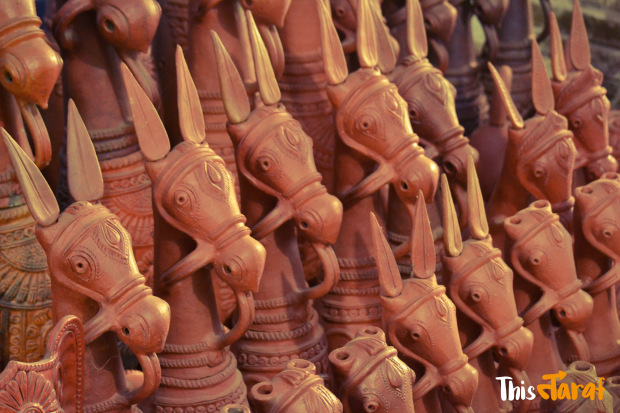
3. Visit the metallic world of Dokra Art at Bikna Village
Bikna village near Bishnupur specializes in the dokra art. Dokra art encompasses metal casting using a four thousand-year old technique called lost wax casting. Around 65 families practice the hollow casting method using clay and wax to form these intricate metal masterpieces.
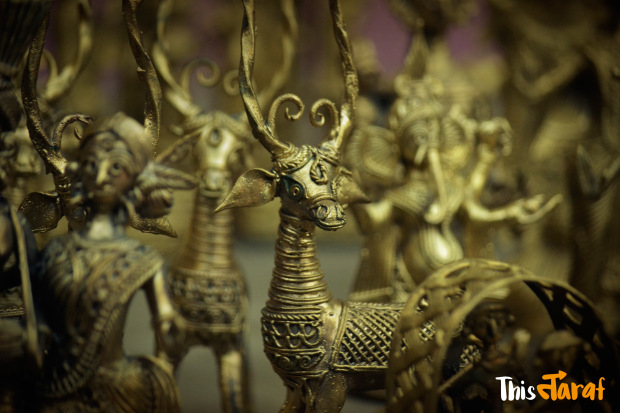
4. Get a sight of the haunted Lal Bandh
Lalbandh was originally an artificial lake. In the 17th century, the ruling king Raghunath Singh Malla II grew very fond of a beautiful Muslim dancer Lal Bai and used to spend time boating in this lake. This led to a hullabaloo in the kingdom and his wife Chandraprabha Devi who later burnt herself alive on the pyre of his husband unknowingly killed the king. In rage, the villagers drowned and killed ‘Lal Bai’ along with his child in the lake.

Paranormal activities have been felt on the site and her cries for help are still heard at night. We did not click any pictures there.
5. Religious trip to Kamarpukur and Jairambati
Kamarpukur and Jairambati and the birthplaces of Sri Ramakrishna Paramhansa and his spiritual consort Holy Mother Sarada Devi respectively.

His disciples believe him to be an incarnation and to spread his teachings, his chief disciple Swami Vivekananda founded the famous socio-religious organization Ramakrishna Mission. Both these places are now maintained by the organization.

6. Explore the Joypur Forests
Joypur forests are a home to a range of sky-scraping trees and a variety of wildlife like spotted deer, wild foxes, wolf, elephants and tropical birds. The forest breeds Mahua trees that are used to make local liquor and the smell can actually addict you.

A wide part of the dense forest is still unexplored while the visitors are allowed inside during the day hours.

7. Stop by the workshop of Sheetal Fauzdar to see Ganjifa cards
Sheetal Fauzdar belongs to the 87th generation of the artists who used to design the Dashavatara Ganjifa cards for the Malla kings.

The fauzdar community people were actually brought to the region from western India to fight battles. Once the wars were over, these men started exploring their creative talent out of boredom and the result was Dashavatara Ganjifa cards. The kings were very fond of this game.

It is a set of 120 hand-painted cards, 10 suits of 12 cards each and played by five players. He is a born artist and is keeping the 1200 year old tradition alive. The cards are round in shape and are available as a set of 12 nowadays.

Durga Puja in Bishnupur is still performed on the Pata paintings of the Goddess. Also a master in Naqsh Taash, Patachitra and clay idols, Sheetal Fauzdar has visited quite a few countries to showcase his art.


8. Stay at the Banalata Forest Resort
Banalata Forest Resort is located amidst the forests of Joypur and is a complete village on its own.

They not only provide great stay and food but also involve in vegetation and animal rearing. Spread over a few acres, they employee around 200 men and women from the nearby villages to work for them.

A variety of flowers, fruits and vegetables are grown in their lush fields and not only used for their in-house restaurant but also for selling fresh crops to visitors.


Not only that, they have in-house staff to chop freshly plucked vegetables for their restaurant.

The need of milk, butter, cottage cheese is all sorted at one place.

They rear many other animals like ostriches, turkey, chicken etc.

The entire area is super clean and creatively decorated with painted lights, carts and locally available handicraft items.

Rooms are scattered all over with plush facilities and separate dining spaces.

Make your bookings well in advance as Banalata enjoys tourists round the year and in case you do not find a place there, stop here on your way to Jairambati for lunch and take a walk inside the resort.

Few more pictures of the breathtaking flora.





9. Buy an authentic Baluchari Saree
Baluchari sarees derive its name from the Baluchar village in Bengal where it was first practiced in India, but due to natural calamities the weaving craft was shifted to Bishnupur. These intricate Jacquard woven silk sarees adorn mythological stories and are authentically produced only in Bishnupur and nearby areas.
So, if you are a saree lover or an art collector, this should surely make a way to your collection.

So, if you are a saree lover or an art collector, this should surely make a way to your collection.
10. Feel the essence of Bishnupur Music Gharana
The Bishnupur Gharana holds the distinction of being the only music gharana in West Bengal and was established by the court musicians of Malla kings in the 13th century. This gharana practices the Drupad tradition of Hindustani Classical music.

Best Season
Ideal season to visit the Bishnupur is between October to March as the summers are very hot in the region.

How to Reach
Bishnupur is an Ex-Kolkata Getaway and can be reached by following ways.
By Rail
Trains from Kolkata (Howrah and Sealdah) are available throughout the day and takes around 3.5 hours to reach.
By Road
Bishnupur can be easily reached via car through Kolkata. Distance is approximately 150 kms.



Bishnupur has a lot of government and private lodges, hotels and resorts suiting everyone’s budget needs. Our abode was Bishnupur Tourist Lodge.
Our Itinerary
Day 1 – Kolkata to Bishnupur – Reached at night.
Day 2 – Local temple tour (first half of the day) – Panchmura and Bikna (second half of the day) – stay at Bishnupur
Day 3 – Jayrambati and Kamarpukur through Joypur Forests – Banalata -Fauzdar Workshop and evening at leisure – stay at Bishnupur
Day 4 – Early morning departure for Kolkata






